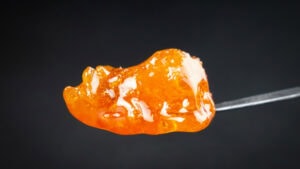If you are familiar with the benefits of cannabinoid therapy, then you may have also heard of the biphasic properties of cannabinoids. In short this means that low and high amounts of cannabis compounds can produce bidirectional, or opposite, effects. Here we will discuss more about this phenomenon and what it means for you and your cannabinoid therapy journey.
When considering cannabinoid therapy in particular, much of the research available does not focus on low dose responses; rather the focus is on high concentration effects. There are long-standing beliefs that, when considering medications, titrating up quickly in dose is best. However, methods such as the biphasic dose-response challenge that dogmatic acceptance. Now we are seeing with specific conditions the magnitude of low doses and inhibitory responses at higher doses.
Contradictory effects at low and high doses of cannabinoids have led researchers to investigate further. For example, when it comes to delta-9-tetrahydrocannabinol (THC), many choose to avoid this intoxicating component of the cannabis plant due to the undesirable side effects. Exposure to cannabis has been associated with cognitive impairments like short-term memory disruption. However, recent studies have shown that in older populations THC may promote hippocampal neurogenesis, prevent the neurodegenerative process of Alzheimer’s Disease, protect against inflammation-induced cognitive damage, and restore memory and cognitive function.
Results over time have demonstrated that the involvement of THC in memory impairment is due to use associated with high-THC concentrations. Compelling evidence has shown that THC taken at extremely low concentrations in aging animal models may have the capacity to slow or halt neurodegenerative diseases such as Alzheimer’s Disease.
The biphasic responses of cannabinoids have also been shown in cerebral metabolism, seizure disorders, pain, and anxiety responses. A known observation of the influence of cannabinoids is on emotional processing, such as anxiety and fear. Researchers have begun to intimately understand the biphasic effects of cannabinoids at the molecular level.
Cannabidiol (CBD) has been looked into for its potential, similar biphasic response to THC with anxiety. Both cannabinoids have shown that lower doses tend to produce anti-anxiety effects while higher doses may produce anxiety-like effects. Although future clinical trials are suggested as one study showed that higher amounts of CBD did not equate to increased feelings of anxiety.
Researchers have recommended that if improvements seen during cannabinoid therapy begin to diminish over time, especially after an increase, then reducing the amount taken may be a potential strategy. For CBD, this is due to the idea that the compound has a reverse tolerance because of the role it plays in the endocannabinoid system as a modulator, rather than directly binding to receptors. Although many cannabinoids are shown to have favorable safety profiles, higher amounts of cannabinoids will not always yield enhanced therapeutic effects.
While biphasic dose responses have shown to be significant with both cannabinoid therapy and clinical pharmacology, it is not the only method to consider. The best approach to cannabinoid therapy is an individual approach, as we all are unique and will respond differently to each cannabinoid and the concentrations of those cannabinoids in products. Working with a care specialist at Realm of Caring can help you to start low and slowly increase to find your optimal dose. We are here to talk with you one-on-one. Reach out by calling 719-347-5400 or emailing info@realmofcaring.org.
Disclaimer
The Realm of Caring Foundation specifically invokes the first amendment rights of freedom of speech and of the press without prejudice. These statements have not been evaluated by the food and drug administration. the products discussed are not intended to diagnose, cure, prevent or treat any disease. Realm of Caring always recommends when and wherever possible that licensed local healthcare professionals be consulted.
The Realm of Caring Foundation is an independent nonprofit with its own governing board. We do not produce or sell cannabinoid products, nor do we receive funds from the sale of other company’s products.








